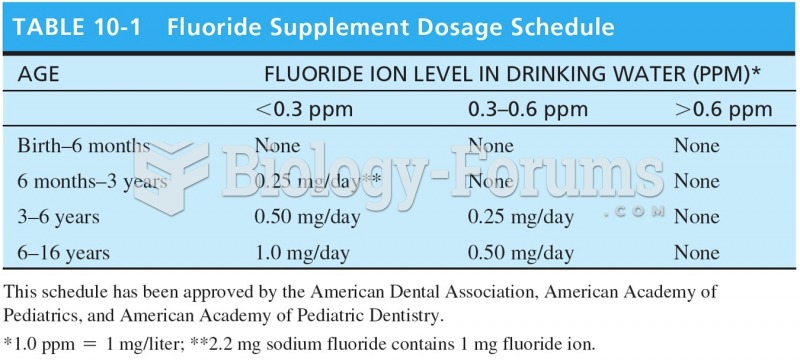Answer to Question 1
Correct Answer: 1,2,3
Rationale 1: This legislation requires that the marketing company's contact information be listed on the label.
Rationale 2: The marketing company must notify the FDA of any reported adverse effects within 15 days.
Rationale 3: The marketing company must keep records of reported adverse effects for at least 6 years and make those records available to the FDA for inspection.
Rationale 4: The marketing company is not required to demonstrate the effectiveness of a product prior to release to the public.
Rationale 5: The marketing company cannot make the claim that a product can cure or prevent any conditions.
Global Rationale: This legislation requires that the marketing company's contact information be listed on the label. The marketing company must notify the FDA of any reported adverse effects within 15 days. The marketing company must keep records of reported adverse effects for at least 6 years and make those records available to the FDA for inspection. The marketing company is not required to demonstrate the effectiveness of a product prior to release to the public. The marketing company cannot make the claim that a product can cure or prevent any conditions.
Answer to Question 2
Correct Answer: 1,2,3
Rationale 1: Many herbal products are not standardized and may contain dozens of active chemicals, many of which have not been identified and studied, making these products potentially unsafe.
Rationale 2: Some herbs contain active chemicals that are just as powerful as approved prescription medications.
Rationale 3: Anytime a client chooses to use an unproven alternative therapy instead of an established, effective medical treatment, healing may be delayed.
Rationale 4: Herbs may or may not be a safe option. The active ingredients can cause interactions with other prescribed drugs.
Rationale 5: It is not unusual for an herbal supplement to contain dozens of chemicals from the flowers, leaves, or roots of the plant. Clients who have food allergies should consult with their health provider before using any herbal product.
Global Rationale: Many herbal products are not standardized and may contain dozens of active chemicals, many of which have not been identified and studied, making these products potentially unsafe. Some herbs contain active chemicals that are just as powerful as approved prescription medications. Anytime a client chooses to use an unproven alternative therapy instead of an established, effective medical treatment, healing may be delayed. Herbs may or may not be a safe option. The active ingredients can cause interactions with other prescribed drugs. It is not unusual for an herbal supplement to contain dozens of chemicals from the flowers, leaves, or roots of the plant. Clients who have food allergies should consult with their health provider before using any herbal product.







